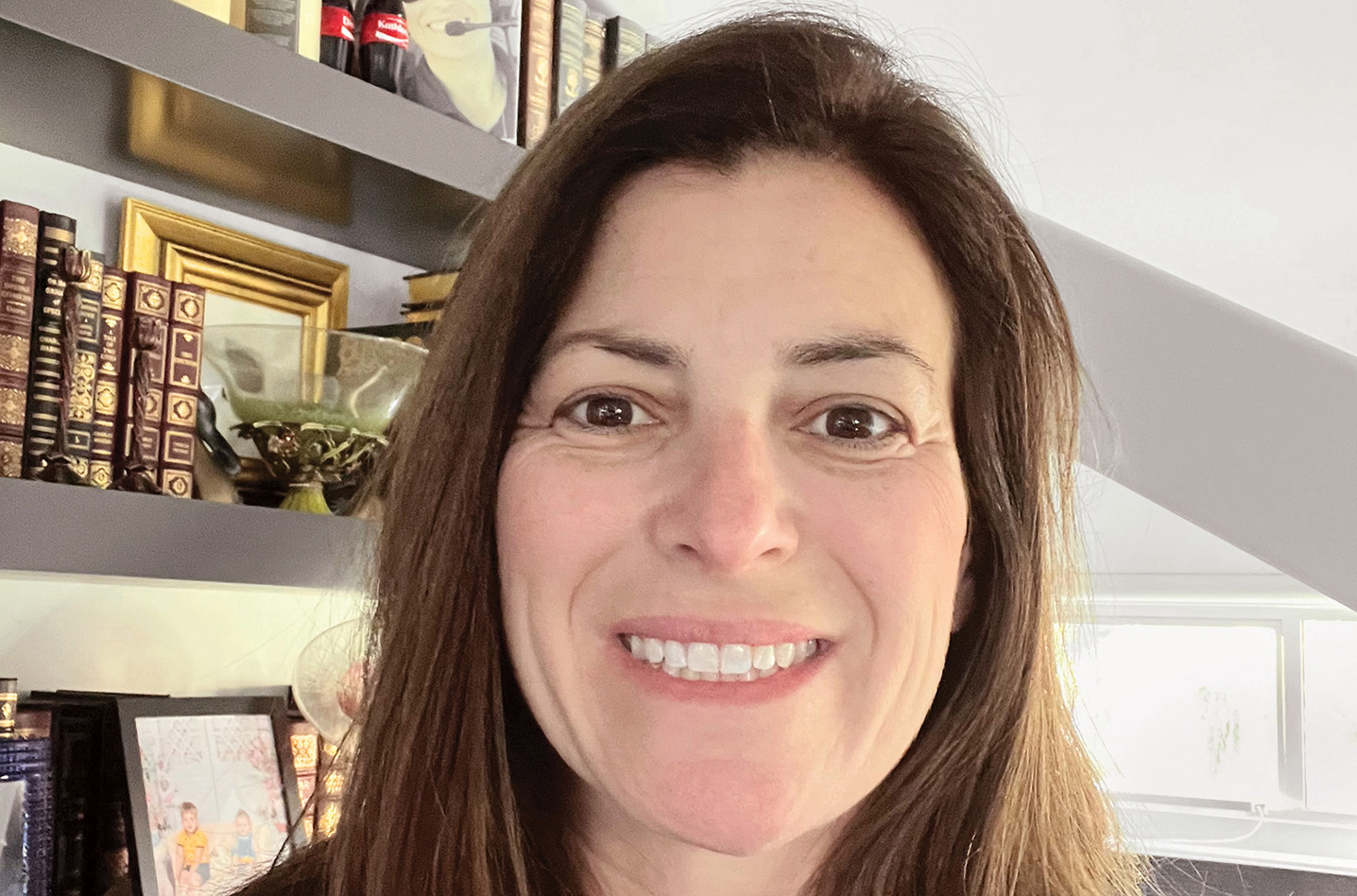In a flash of bright orange, blue and purple, a King Air 360 dips below the trees over California’s Central Valley, landing in the middle of an orchard about an hour west of Fresno. The Stamoules Produce sales team has returned to Mendota, CA.
Fed by 100-mile-long canals, Mendota is “the cantaloupe center of the world” – a swath of fertile land that produces fruit, nuts, corn and vegetables from about 700 farms. And for the last two years, it has received 0% of its allocated irrigation water.
“About four or five years ago, they told us we’re pretty much not going to have water,” explained Elena Stefanopoulos, Stamoules’ business and financial manager. “That’s why we started to shift over to pistachios. Because they’re more durable.”
“Now that we’ve started selling our own brand, [flying there] helps build a relationship. It’s more substantial than a phone call.”
Katie Stefanopoulos Pilot, Stamoules Produce
Elena and her two brothers, Spero and Dionysos (“Dio”) Stefanopoulos, run the farming business founded by their grandfather in 1927. A Greek immigrant who had waited tables at the Waldorf Astoria in New York City and served in World War I, Spero Stamoules planted cantaloupes in Mendota with seeds scraped off the plates he cleared.
From fewer than 40 acres of cantaloupes, Stamoules Produce expanded into honeydew, onions, bell peppers, broccoli and sweet corn, spanning over 17,000 acres today. They have prospered, but also struggled, along with the rest of Mendota, through California’s prolonged drought.
A Pilot in the Family
“Certain crops are more demanding of water,” said Spero, named for their grandfather, “and when there is not good canal water, you have to rely on well water. Almonds, melons and sweet corn are very sensitive to brackish well water. They can’t handle it like pistachios can.”
For the past several years, Stamoules Produce has been planting pistachio orchards and planning to launch their own consumer brand, Opa Pistachios. They are building a hulling plant and a packaging facility. And, to introduce the new brand to wholesalers and grocery chains, they paved a 4,900-foot runway on the farm and bought the King Air 360, their first airplane.
Dio’s wife, Katie Stefanopoulos, is a 7,500-hour pilot who flew King Airs out of Fresno Yosemite International Airport (FAT) for years. When she joined the family business, they discovered a new way to meet customers across the country.
“Walmart, Kroger… we can go meet everybody now, because of the airplane.”
Elena Stefanopoulos Stamoules Produce Business and Financial Manager
“We’re going to Arizona next week with six of our sales reps, to meet wholesalers and grocery buyers,” said Katie. “Our sales team has never met 90% of their customers. It was always by phone. Now that we’ve started selling our own brand, [flying there] helps build a relationship. It’s more substantial than a phone call.”
On longer legs and when the airplane is carrying a full load of passengers, Katie will fly with Bruce Kalashian, a contract pilot who has known the Stefanopoulos family for decades. Since taking delivery in 2020, Stamoules has flown about 150 hours per year in the King Air 360, often making day trips to visit customers in Oregon, Nevada, New Mexico and other western states.
“We’ll start small, and eventually we’ll go as far as New York, Canada and Mexico,” said Elena. “Walmart, Kroger… we can go meet everybody now, because of the airplane.”
150 Truckloads Per Day
Stamoules Produce was the launch customer for the King Air 360 in November 2020. The family initially looked at the Pilatus PC-12, but Katie insisted on a twin-engine airplane for added safety. They considered a 250 and had settled on the 350 for added cabin space and range, before Textron called and offered them the chance to take delivery of the first 360.
The aircraft performs the same as a 350, said Katie, with the addition the Collins Aerospace Pro Line Fusion avionics, digital pressurization and an autothrottle system. “I had experience with glass, but the autothrottle took a little getting used to,” she said. “It actually helps you manage your attention on takeoff and take care of the rest of the aircraft.”
She and Kalashian trained on the 360 for two weeks at FlightSafety in Tampa, FL, which is where they return for recurrent training. Kalashian flies single-pilot on shorter missions when Katie is not available, covering about 15 to 20 flights per year.
Early on, Katie instituted a business continuity policy that Dio, Spero and Elena would not fly at the same time, if avoidable. She is also careful about assessing the weather and her own fatigue. The airplane is covered by Textron’s ProParts airframe and avionics program and the engines are under warranty. After harvest season ends, she flies to a Textron service center in Sacramento, CA, for its two-week annual inspection.
The airplane is hangered at Fresno Yosemite, close to where many of the sales reps live. The runway at the farm allows direct access to Stamoules’ main sales office, processing facility and headquarters.
The busy season in Mendota begins with spring planting, continues through summer harvest and fall shipping months. In October, 150 trucks loaded with nuts and produce leave their facility every day. Stamoules employs 50 full-time staff and as many as 3,500 seasonal workers, and even with the Central Valley’s water supply dwindling, “we want to keep those jobs,” said Elena.

For its first 50 years, Stamoules Produce grew mostly fruits and vegetables. The farm began growing pistachios in the 1960s.
Inbound Calls
After 96 years in the produce business, Stamoules has solid relationships with both foreign and domestic customers.
“Right now, for produce, people call us. They know the Stamoules label, and our sales team fills orders,” said Spero, who heads planting, harvesting and sales operations. “Hopefully, we want to put ourselves in the same position with the pistachio brand.”
First, they have to introduce customers to the Opa brand. “We know how to move produce, but we’re less familiar with nuts and the consumer market,” said Elena. “So, we thought, why not get our own plane, go out and meet our customers?”
While Stamoules has grown some pistachios since the 1960s, when their grandmother planted the first 19 acres, they grew mostly fruit and vegetables for over 50 years. For the nuts they did grow, they contracted with other farmers to harvest and haul them. By 2008, when Stamoules’ pistachio acreage had increased, they arranged to sell their nuts to The Wonderful Company.
“Packaging and launching our own brand is going to be very new to us,” said Spero. “Now we’re venturing into a different world of marketing.”
Stamoules has invested $20 million in the hulling plant and a packaging facility is planned. Dio, the architect of the family, designed a logo and several packaging concepts.
“We like to meet people, shake their hand, give them something with the Opa brand,” said Dio. “And every time we jumped in the airplane to go and meet a broker and ask if they’re willing to take on this new brand that we’re developing, they said, ‘Yes, absolutely.’”
Joining the Family Business

Joining the Family Business
With 7,500 flight hours, Katie Stefanopoulos had a varied and extensive career in aviation before Stamoules Produce bought its first airplane and she became the pilot for the California-based family business.
She earned her private pilot license in high school, but originally planned to go to law school.
“My father was a commercial charter pilot, and we had a Cessna 150 growing up, so I went to ground school when I was a teenager,” Katie said. “Then, I was at [University of California,] Davis and I was in the Flying Aggies, and I would fly home, and I just loved it more than my legal internship.”
After earning her ratings, she took a job as a flight instructor which was followed by flying a Cessna 182 for gas pipeline patrol. She also flew cargo for FedEx out of Oakland, CA, for six years, ultimately becoming the safety officer for that operation before moving to Fresno, CA, where she flew charter and medevac for several years.
“I had made some contacts in Fresno, so I was flying as an independent contract pilot when I was married, until I got pregnant,” said Katie. “I was flying until my fifth month. We had the idea to get the airplane and I took on this new role with the family business.” Now she oversees a flight operation herself.
Snapshot: Stamoules Produce
Aircraft: One King Air 360
Base: Headquartered at California’s Fresno Yosemite International Airport (FAT)
Personnel: Katie Stefanopoulos flies and manages the flight operation, with one contract pilot



 International Business Aviation Council Ltd.
International Business Aviation Council Ltd.